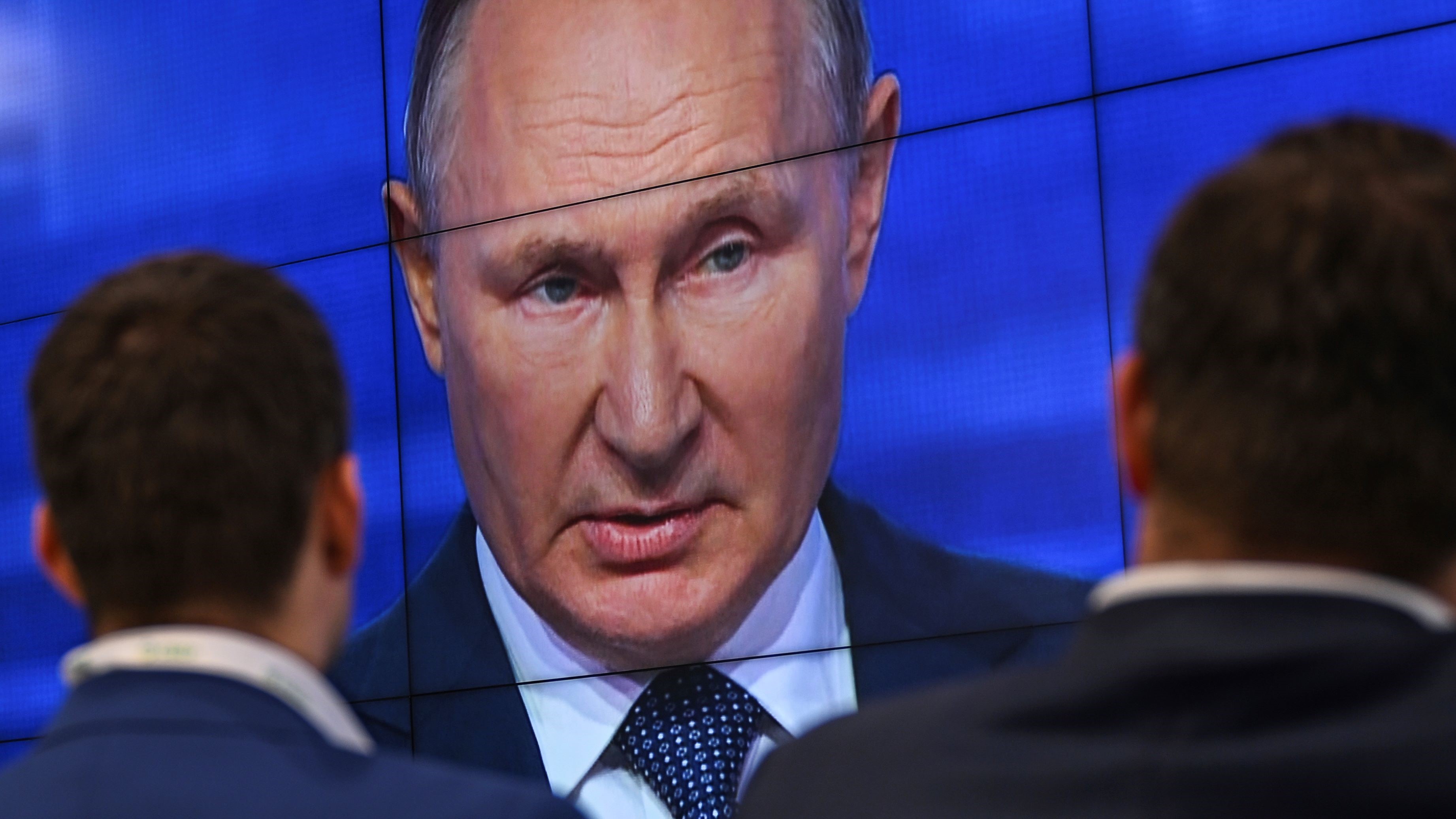Trump's Russia Sanctions: A Deteriorating Relationship With Putin

Table of Contents
The Context of Sanctions Before Trump
Before the Trump administration, US-Russia relations were already strained, marked by a history of sanctions stemming from various events. The post-Cold War era saw periods of cooperation and conflict, but significant tensions arose with Russia's actions in Georgia in 2008 and, more significantly, the annexation of Crimea in 2014. These events triggered waves of sanctions from the US and its allies.
- Post-Cold War Sanctions: Early sanctions focused on issues like proliferation of weapons of mass destruction and human rights violations.
- 2008 Georgia Invasion: Russia's military intervention in Georgia resulted in targeted sanctions against Russian officials and entities.
- 2014 Crimea Annexation: This act led to a significant escalation in sanctions, targeting key sectors of the Russian economy, including finance and energy. These pre-Trump sanctions laid the groundwork for the already tense relationship that Trump inherited. Understanding this history is key to analyzing the impact of his subsequent actions on Russia sanctions.
Trump's Approach to Russia Sanctions: A Mixed Bag
Trump's approach to Russia sanctions was characterized by inconsistency and a perceived reluctance to impose new measures, even in the face of significant provocations. This created considerable controversy and tension both domestically and internationally. His administration's actions, or inactions, regarding sanctions contrasted sharply with the bipartisan consensus in Congress and among many foreign policy experts.
- Hesitation on New Sanctions: Despite numerous instances of alleged Russian interference in US elections and other aggressive actions, Trump often appeared hesitant to impose new sanctions or enforce existing ones effectively.
- Controversies and Critiques: The infamous Helsinki Summit in 2018, where Trump appeared to side with Putin over US intelligence agencies on Russian interference in the 2016 election, exemplifies this hesitancy and fueled widespread criticism. This event significantly damaged trust in the administration's commitment to a robust sanctions policy against Russia.
- Examples of Reluctance: Numerous reports and investigations detailed instances where the Trump administration delayed or weakened the implementation of sanctions approved by Congress. This lack of consistent enforcement undermined the effectiveness of the existing sanctions regime.
The Impact of Sanctions on the US-Russia Relationship
Trump's ambivalent approach to Russia sanctions had a profoundly negative impact on already strained US-Russia relations. His actions, or lack thereof, eroded trust and significantly hampered cooperation on critical global issues. The inconsistent policy created uncertainty and unpredictability, making it difficult for allies and adversaries alike to understand the US position on Russia.
- Damaged Trust: Trump's actions fostered a perception of weakness and inconsistency in US foreign policy, undermining credibility and alliances. This lack of trust severely hindered the ability to build productive relationships with Russia or other countries.
- Hindered Cooperation: The strained relationship made cooperation on issues like counterterrorism, arms control, and combating the spread of nuclear weapons far more challenging, potentially jeopardizing global security.
- International Relations Fallout: Trump's approach further strained international relations, as allies questioned the commitment of the United States to upholding international norms and norms against aggressive actions by Russia.
Congressional Pushback and Bipartisan Concerns
Despite Trump's reluctance, Congress consistently pushed for stronger sanctions against Russia, demonstrating a bipartisan consensus on the need to hold Russia accountable for its actions. This demonstrates a powerful check on executive power within the US system.
- Legislation and Bipartisan Support: Congress passed numerous bills imposing sanctions on Russia, often overriding Trump's objections or attempts to weaken their impact. This included sanctions targeting Russian oligarchs, financial institutions, and energy companies.
- Reasons for Pushback: Congress sought to counter Russian aggression, protect US interests, and uphold democratic values through strong and consistent sanctions. This pushback illustrates a determination within Congress to maintain a firm stance against Russian interference and actions undermining global security.
The Lasting Legacy of Trump's Russia Policy
Trump's approach to Russia sanctions left a complex and potentially lasting legacy on US-Russia relations. The inconsistency and perceived weakness in his administration's stance have created significant challenges for subsequent administrations. The current state of affairs reflects ongoing tensions and a need for a more cohesive and consistent policy moving forward.
- Ongoing Tensions: The relationship between the US and Russia remains strained, burdened by the lingering effects of the Trump administration's inconsistent approach to sanctions.
- Challenges for Future Administrations: Rebuilding trust and establishing a predictable and effective sanctions policy will require a significant effort and a clear, consistent strategy.
- The Biden Administration's Approach: While the Biden administration has taken a firmer stance on sanctions against Russia, the damage done by the previous administration's inconsistencies cannot be easily erased.
Conclusion:
Trump's approach to Russia sanctions was a defining feature of his presidency, characterized by inconsistency and reluctance that significantly impacted US-Russia relations. His hesitation to impose or enforce sanctions, coupled with instances of apparent appeasement towards Putin, eroded trust, damaged diplomatic efforts, and undermined international norms. While Congress attempted to counteract these weaknesses through strong bipartisan action, the lasting legacy of this period remains a challenge for future US administrations seeking to navigate the complex geopolitical landscape. To further explore this complex issue, search for more information on "Trump Russia sanctions" or "Putin's response to US sanctions."

Featured Posts
-
 Ryan Reynolds And Justin Baldoni A Legal Dispute
May 28, 2025
Ryan Reynolds And Justin Baldoni A Legal Dispute
May 28, 2025 -
 Belanda Spanyol 2 2 Hasil Pertandingan Uefa Nations League
May 28, 2025
Belanda Spanyol 2 2 Hasil Pertandingan Uefa Nations League
May 28, 2025 -
 Sinners Unbeaten Grand Slam Run Continues French Open Win Extends Streak To 15
May 28, 2025
Sinners Unbeaten Grand Slam Run Continues French Open Win Extends Streak To 15
May 28, 2025 -
 Martin Keowns Arsenal Striker Prediction
May 28, 2025
Martin Keowns Arsenal Striker Prediction
May 28, 2025 -
 Viktor Gyoekeres In Gol Asist Ve Performans Istatistikleri
May 28, 2025
Viktor Gyoekeres In Gol Asist Ve Performans Istatistikleri
May 28, 2025
